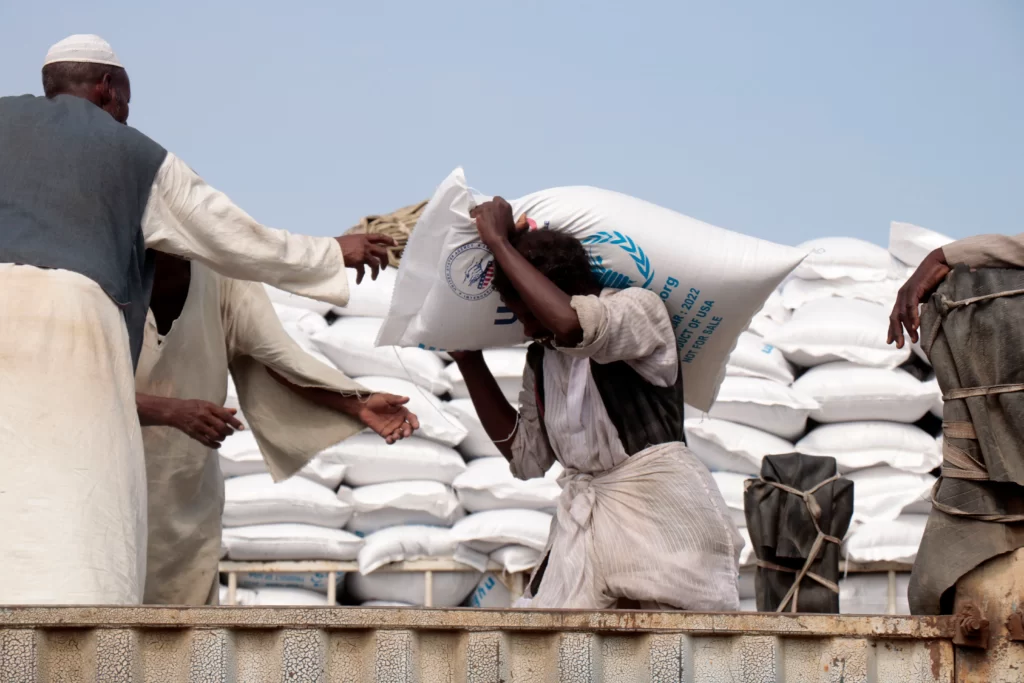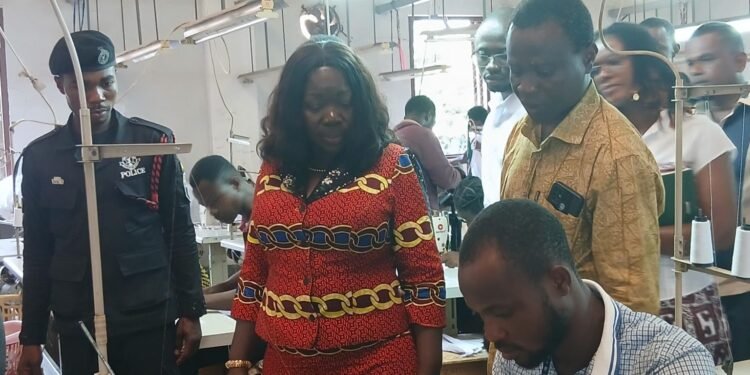Houthi forces’ assaults on ships in the Red Sea are obstructing the delivery of crucial aid to Sudan and increasing costs for financially strained humanitarian organizations in the East African nation.
Due to the attacks, ships transporting aid from Asia to Port Sudan are now compelled to navigate around Africa, cross the Mediterranean Sea, and enter the Red Sea through the Suez Canal from the north.
This considerable detour results in significant delays and increased expenses.
“It’s making our operations very expensive,” said Eatizaz Yousif, Sudan country director for the International Rescue Committee. “Shipments that took one or two weeks, maximum, now take months to reach us.”
Due to the ongoing conflict between rival military groups that began in April 2023, Sudan has been severely impacted, with dire consequences for its population.
Approximately half of the country’s 48 million people are in urgent need of food assistance, and nearly 8 million individuals have been displaced from their homes, resulting in the world’s largest internal displacement crisis.
Aid organizations in the crisis-affected area were encountering significant challenges even before the Iranian-backed Houthis began assaults on Red Sea vessels in November 2023.
These challenges included insecurity, inadequate funding, and bureaucratic hurdles.
In response, smaller shipments of aid are now being disembarked at ports in the United Arab Emirates. These shipments are then transported across Saudi Arabia and finally shipped to Sudan from Jeddah.
This route has been chosen specifically to avoid the conflict-ridden coast of Yemen. Additionally, other aid is being flown in from Kenya or driven across the border from Egypt to assist those in need.
According to Omer Sharfy, the local head of supply chain management for Save the Children, all of these routes are longer, more expensive, and involve more red tape than directly shipping supplies to Port Sudan.
“The Houthi issue has completely choked the market,” Sharfy said. “Medical consumables are very scarce.”
The closure of the Red Sea meant a shipment of life-saving nutritional supplies, due to be distributed by Save the Children in late November 2023 only arrived in January this year, said Sharfy.
Furthermore, another leading aid organization, requesting anonymity due to security concerns, disclosed that they are still awaiting two shipments containing insulin and other medications.
According to the organization, the intended beneficiaries were meant to receive these supplies in January 2024 but the supplies are currently stuck in Dubai. The organization now confronts air freight expenses totaling $160,000 (£127,000) to transport its next batch of medicines, a significant increase compared to the previous cost of $20,000 for sea shipment.
Worsening Humanitarian Situation

In Sudan’s western Darfur region, ongoing conflict and banditry are impeding humanitarian access, leading to the tragic deaths of children due to hunger and preventable illnesses.
Aid workers express deep concern that the approaching months may witness widespread starvation across much of Sudan.
According to Kashif Shafique, the Sudan head of Relief International, the Red Sea crisis has worsened the response efforts. He described the situation as “catastrophic.”
He said, “There’s additional costs and delays. But right now, with the situation we are facing on the ground, we need immediate action to move supplies.”
Moreover, international attempts to broker a ceasefire have seen only temporary success. Both sides continue fighting, and tribal conflicts could further escalate.
The situation is driving Sudan toward collapse, with millions trapped in a humanitarian calamity.
As of January 13, 2024, 9,600 suspected cholera cases, including 264 deaths, had been reported from nine states. Other disease outbreaks include measles, malaria, and dengue fever.
To make matters worse, about 70-80% of hospitals in conflict-affected areas are no longer functional, and 65% of the population lacks access to healthcare.























